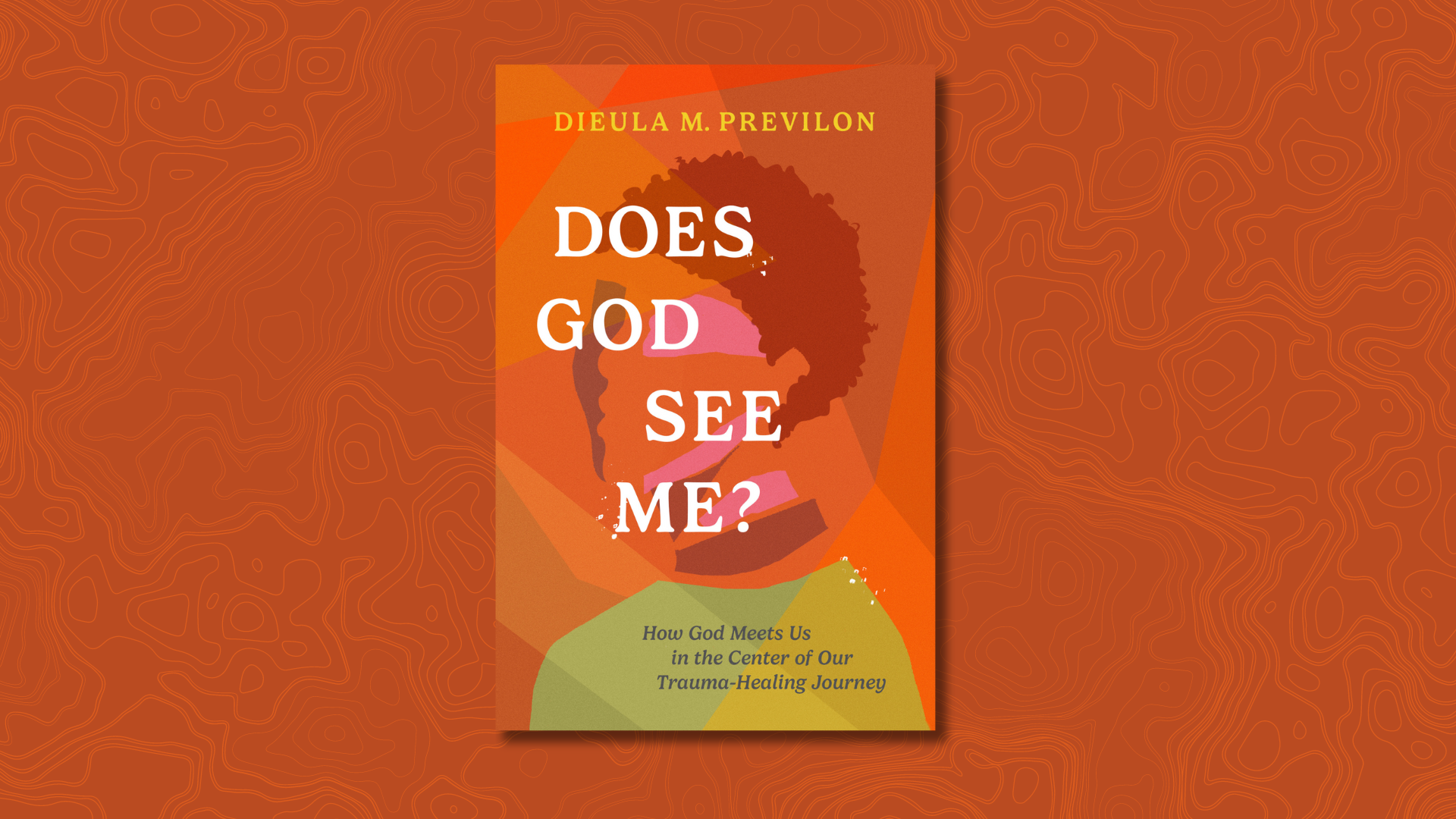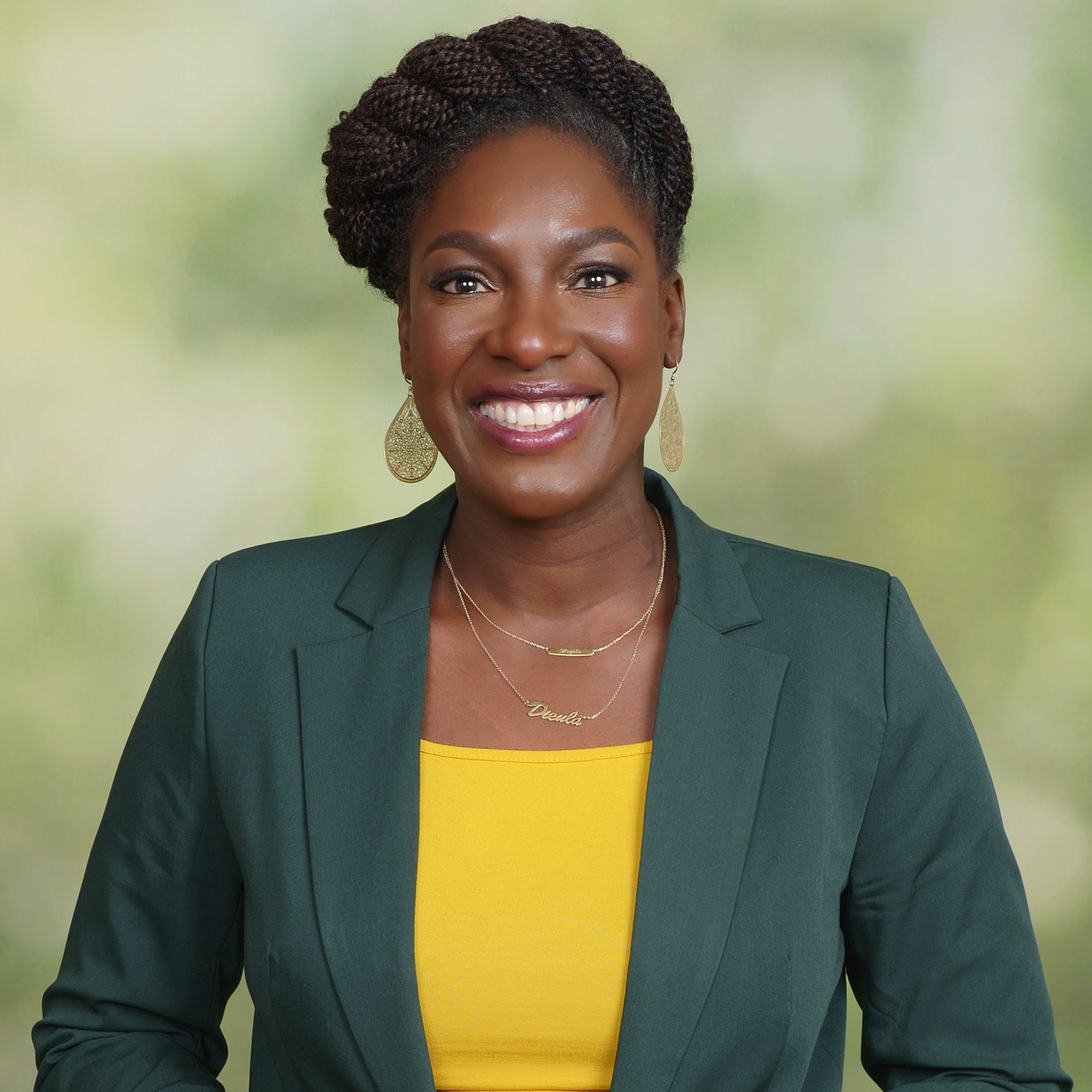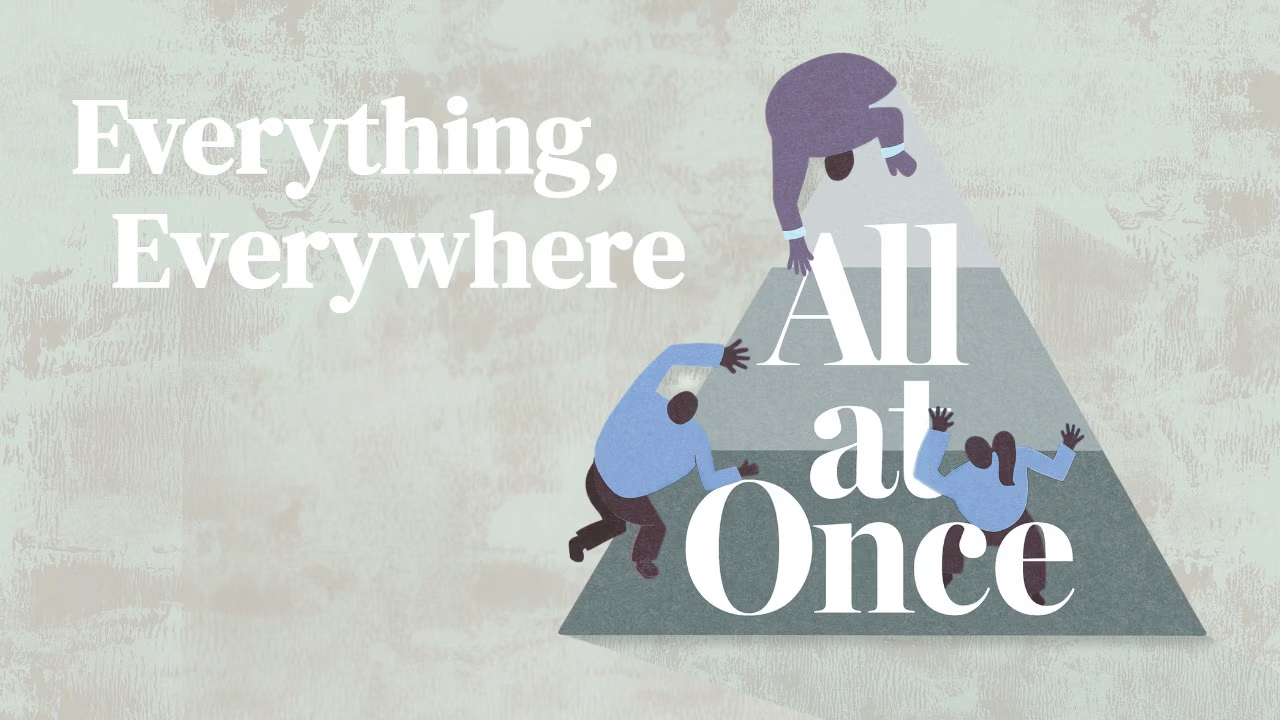In her forthcoming book, Does God See Me?, ordained Covenant pastor Dieula Previlon invites readers onto a healing journey. Drawing from her own testimony to bridge the gap between experience and empowerment, she calls readers to apply effective principles for healing trauma, engage in reflective questions, and practice whole-body exercises that lead to understanding, self-discovery, and growth. In honor of Black History Month, we share this excerpt.
Until Christ returns to overcome the evil systems of the world, bringing about the new heaven and the new earth, racial disparities and trauma are issues we will grapple with. This reality often creates a sense of hopelessness and helplessness for me, but I’m reminded that God invites us to join him in dismantling these systems. Through the power of the Holy Spirit, we can step forth and create a more just world where all of God’s created beings can flourish. To do that, a holistic approach to healing from racial trauma is necessary.
Prayer
Healing for those who live in perpetual trauma should always begin with prayer. Social movements that take a stand against deeply rooted societal structures have no chance of succeeding without prayer. Prayer is the anchor that keeps us steady and reminds us that “our struggle is not against flesh and blood, but against the rulers, against the authorities, against the powers of this dark world and against the spiritual forces of evil in the heavenly realms” (Ephesians 6:12). When we pray, we engage with the Holy Spirit, who fights with us and for us. Prayer helps us keep the faith as we see evil prospering. Prayer helps us stay committed, encouraged, and connected to one another in the community for the long haul. And prayer fuels the energy needed to fight for justice in an unjust world.
Fighting for Equity
Fighting for equitable practices in society is an important component of any initiative that seeks to heal racial trauma. As we do the emotional work in this healing journey, we must also do the physical work of addressing and removing the sources that are producing the trauma. The emotional and physical go hand in hand. Justice is about doing what is right by ensuring that vulnerable populations are seen, represented, supported, and given every opportunity to flourish. Isaiah 58:6-7 says, “Is not this the kind of fasting I have chosen: to loose the chains of injustice and untie the cords of the yoke, to set the oppressed free and break every yoke? Is it not to share your food with the hungry and to provide the poor wanderer with shelter— when you see the naked, to clothe them, and not to turn away from your own flesh and blood?”
In Luke 4, Jesus quoted the same passage from Isaiah to remind us that he came to ensure that justice is served and to set the oppressed free. This is our task as well. We are called to work toward the defeat of racial trauma that impacts God’s created beings and prevents them from flourishing. We must be well acquainted with advocacy work, and we must use our voices, our influence, our finances, and our power to ensure that all people are free from the oppression of racial injustice. Though we may not see it in our lifetimes, we must continue to join God in his work of setting free the oppressed, traumatized, and vulnerable.
Trauma-Informed Counseling
As we pray and fight for justice and equality, we must prioritize trauma-informed care for those who suffer from persistent trauma. To ensure that victims have a chance at living productive lives beyond the constant struggle to survive, we must create an awareness of the need for robust counseling and healing groups. Institutions and churches, in particular, need to become trauma-informed spaces. As society becomes more vocal about mental health needs, the church has a great opportunity to meet the need for racial trauma healing among its BIPOC sisters. (BIPOC stands for “Black, Indigenous, and people of color.”) It is important for leaders of churches and organizations to understand the pervasiveness and persistence of racial trauma and find ways to become places of safety that foster healing. Counseling and healing groups for the racially traumatized are not just a luxury for the privileged and the elite; they are a necessity for the under-resourced as well.
I believe people of European descent also need racial trauma–informed counseling. I remember looking at an image of a lynching from the internet in which men, women, and children were all gathered around a body hanging from a tree as they were picnicking. As a trauma therapist, I often wonder what that normalized trauma did to that community. Did any of the children have trauma responses? No one can absorb witnessing and/or experiencing hundreds of years of trauma throughout generations without any form of intentional trauma healing and remain okay. Healing for our sisters and brothers of European descent must include awareness, lamenting, repentance, divesting from racist systems, forgiveness, and reparation.
Self-Care
We also need to reimagine what overall wellness and self-care can look like in BIPOC communities that are facing persistent racial trauma. I love the words of Chichi Agorom in The Enneagram for Black Liberation: “We are not here to just fight and suffer until we die. We get to choose rest, ease, and joy for ourselves.” Yes, we must fight for justice, but we must also create spaces for joy.
For the racially traumatized, self-care must be a priority that every church and institution champions and encourages. We can’t simply think of self-care as an individual practice to improve the self in isolation; we must embrace care for the traumatized in the context of loving communities. Chichi Agorom says, “What we know to be true, however, is that our wellness and liberation do not exist separate from the collective.” Self-care and wellness in a vacuum are sure ways to perpetuate burnout and loneliness. A holistic approach to self-care will embrace engaging with the community, sharing your needs, and having the community show up to celebrate and reinforce your need for care. Self-care challenges the status quo, and it helps with playing the long game in life that reaches beyond survival. So take deep breaths, go on long walks, dance, turn off the news, meet up with friends, create loving circles where you can be fully present, and allow your soul to rest. And do these things often to survive and—dare I say—thrive.
Awareness and Self-Love
Racial-trauma healing has been a continual journey for me that began with an awareness in college that led me to take many Africana studies courses. This is where I started to understand the history of my own people in Haiti, the fight for freedom in South Africa during apartheid, and the history of the enslaved in the US. I wanted to understand what I was seeing and feeling in America. As my understanding grew, I went through a season of deep lament and grief. My parents were very proud Haitians who loved their country. They’d listen to Haitian radio stations for news, they played the music that is often seen as sacrilegious in many Christian circles, and my dad frequently traveled back and forth to Haiti. Their plan was always to return to Haiti and retire there. Their pride in Haiti made me even more proud of being Black. Which made the next step of my trauma-healing journey an important one. In the twenty-two years I had lived in the US, I had never returned to Haiti for a visit, partly because everyone had warned me that it was too dangerous. But after attending seminary, I decided to return.
Racial-trauma healing will look different for each of us. Only you can name what’s been taken from you and what needs to be reclaimed. I pray that as you continue this journey of healing, God will be with you every step of the way. I also pray that you will trust God to guide you to safe healing spaces and people and Sankofa journeys that will show you how to live more and more into the fullness of who you are until he returns.
Excerpted and adapted from Does God See Me?: How God Meets Us in the Center of Our Trauma-Healing Journey by Dieula Magalie Previlon. Copyright © 2024. Used by permission of NavPress. All rights reserved. Represented by Tyndale House Publishers, a Division of Tyndale House Ministries.














